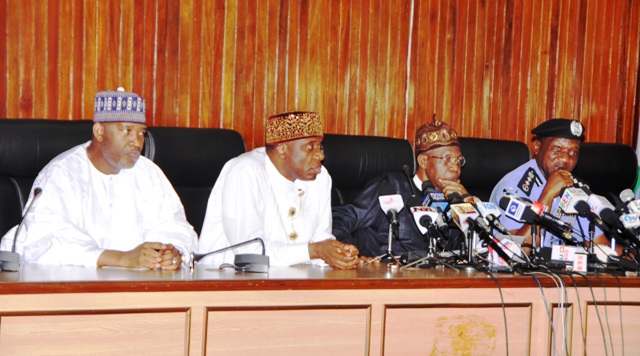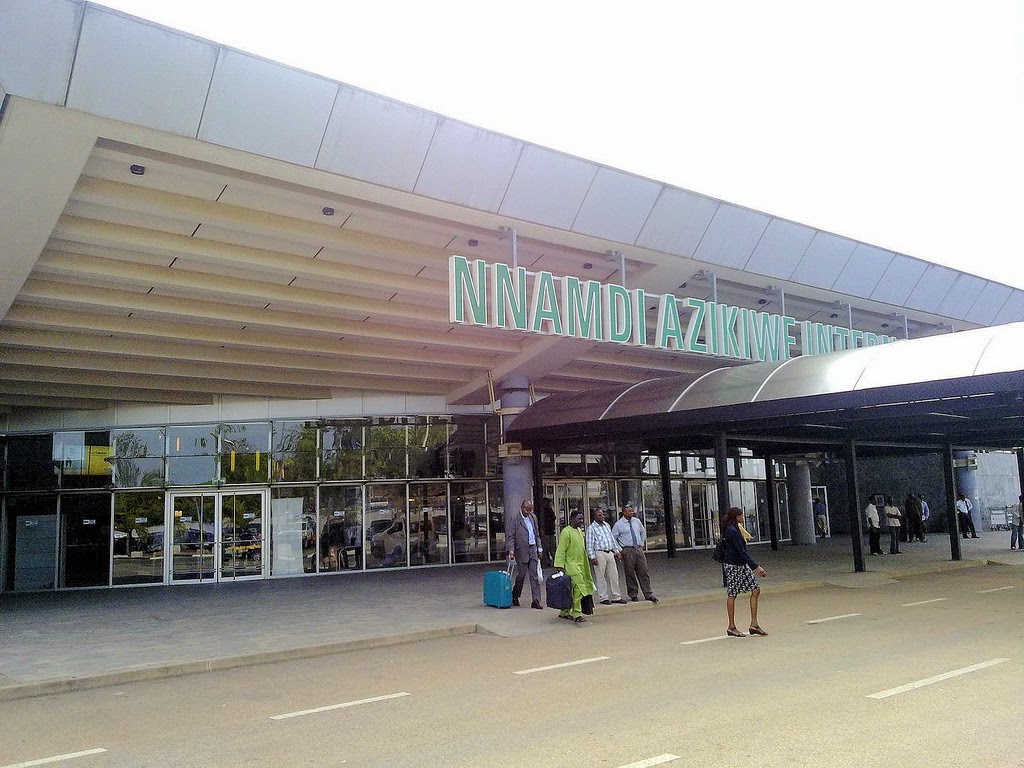From 12am on Wednesday, March 7, 2017, the Nnamdi Azikiwe International Airport, Abuja, will be closed down for repairs.
The controversial decision, which has been rejected by majority of international airlines, will last for 6 weeks, Lai Mohammed, Nigeria’s minister of information told a press conference on Monday, March 5, 2017.
The press conference was also attended by the minister of transportation, Rotimi Amaechi; the minister of state in charge of aviation, Hadi Sirika; and the country’s police chief, Ibrahim Idris.

Transportation Rotimi Amaechi, Minister of Information and Culture Lai
Mohammed and the Inspector General of Police Ibrahim Idris at a Joint
Press Conference in Abuja on Monday to announce the closure of the
Nnamdi Azikiwe International Airport for the rehabilitation of the
runway. | Gov’t Photo
Amaechi said the government has kept its promise to make Kaduna Airport ready for use as alternative, a point that was corroborated by Sirika, who said the observations made by acting President Yemi Osinbajo who was in Kaduna Airport last Friday had been “taken care of.”
Sirika said the government has set up a website: www.abujaairportclosure.info, through which information will be shared with Nigerians.
He also disclosed to members of the press that only one foreign airline, Ethiopian Airline, has agreed to use the Kaduna Airport.
Nigerian Airport Closure Antecedent
Reuben Abati, a respected policy analyst, has cautioned the federal government over the decision to close the Abuja International. In an opinion editorial in January 2016, he cited the permanent state of renovation of Owerri and Port Harcourt Airports which were closed for the purpose of runway repairs years ago.
“A few years ago, the Federal Government of Nigeria shut down the Port Harcourt International Airport to carry out what they called repairs or was it renovation? It was supposed to be an exercise for a few weeks, but it took more than an entire year. Flights were diverted to an airport in the city at great cost to travellers, but the so-called renovation took forever,” Dr. Abati observed.
“The Port Harcourt airport became a grazing field for cows, at other times, a vehicle-driving field, and for more than one year, travel to Port Harcourt, one of Nigeria’s most strategic cities was a nightmare. Each time the Nigerian government talks about fixing the airports, using the words, renovation, rehabilitation or reform, it is better to be cynical.
“The Sam Mbakwe Airport in Owerri, for example, was once touted as a major hub in the South East, and government spent so much money turning it into an international cargo airport for the East, but that same airport soon became flooded during the rainy season and planes could no longer land.
“Both the Port Harcourt and Owerri airports are currently in a permanent state of renovation. The lives of those who wanted to renovate them at any level whatsoever are ironically and scandalously, imaginably better renovated.
“The airports failed, the managers smiled to the banks. In those two airports, travellers were put through enormous strain because the entire airports or sections had to be shut down. But the people, expectant as they were had no choice in the matter,” he wrote.







